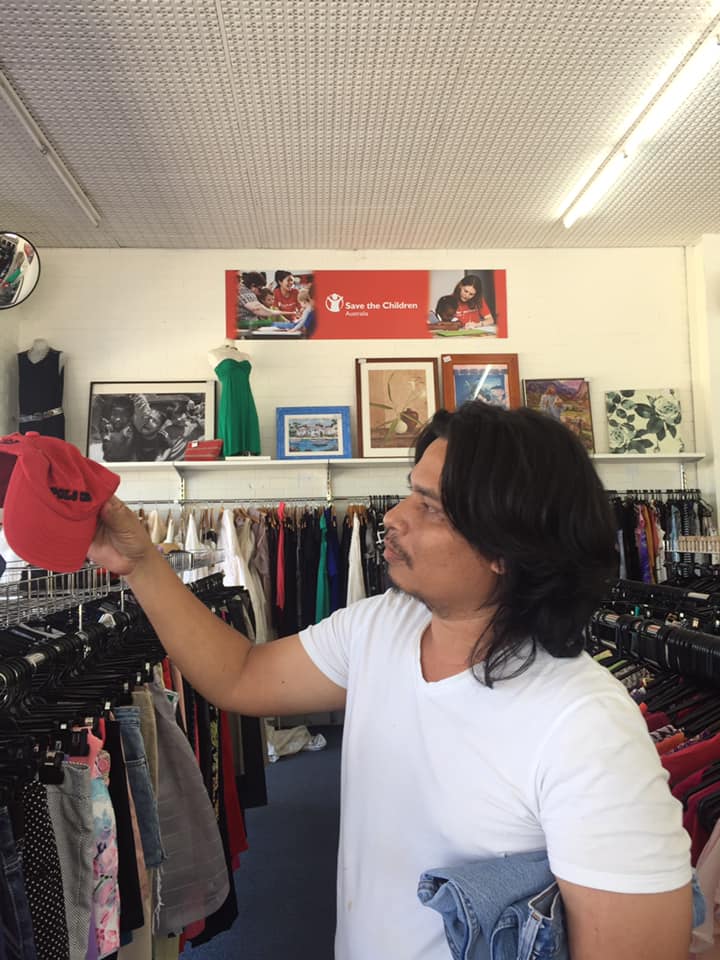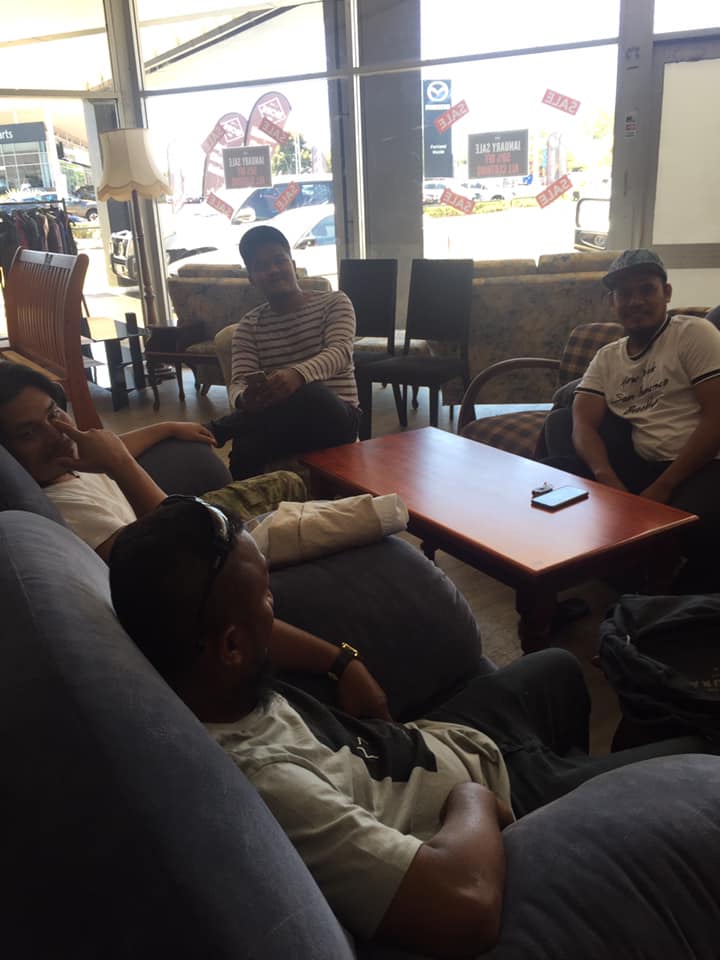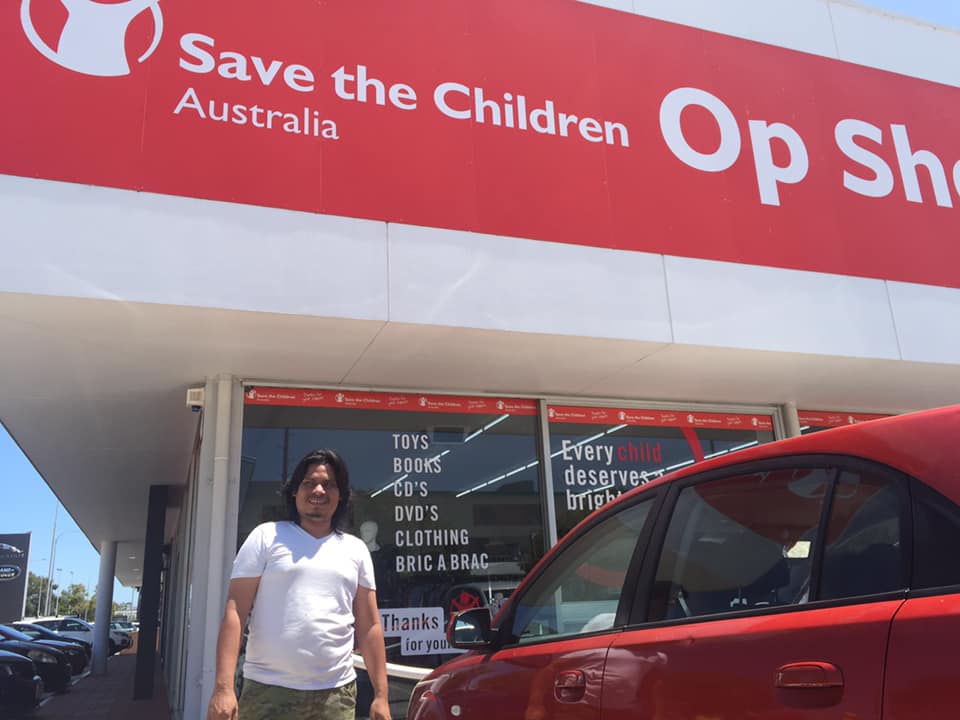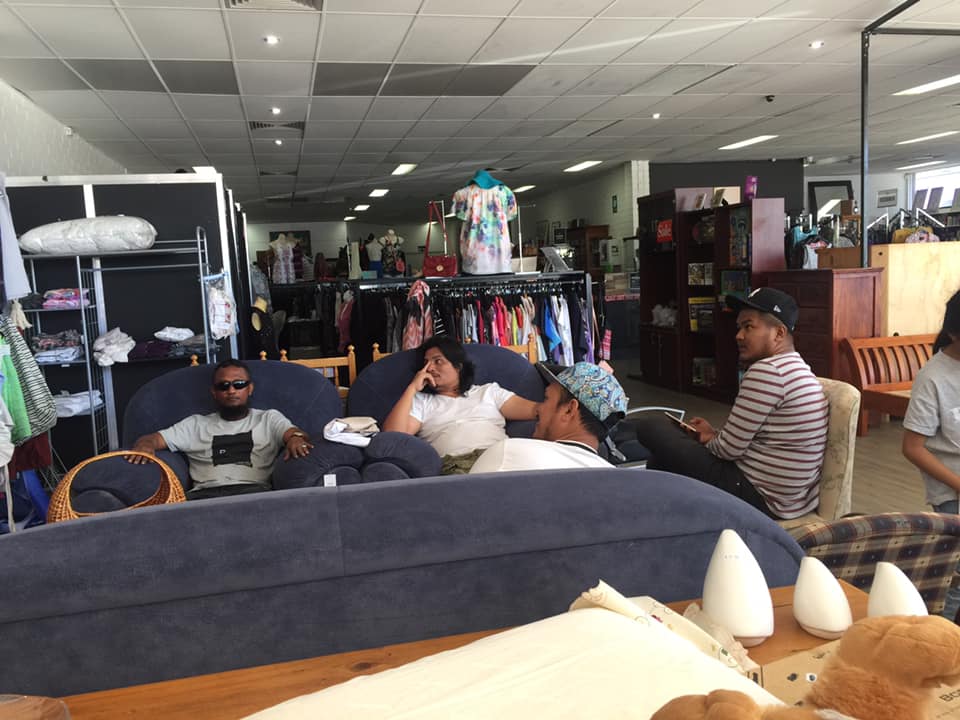
During my stay in Australia, I had a great opportunity to see and learn about the lifestyle of its citizens, especially in their love of sharing. The first fact that I discovered is that it is not quite right to say that Australians are individualists. The truth is they don't want to meddle in other people's business as long as what other people are doing doesn't bother them.

The second fact is that Australians have a strong passion for helping others. There are many activities whose purpose is to help others. Almost throughout the year there are massive social movements or activities that invite people to share. Apart from being done in groups and formally, many of these sharing activities are carried out individually and non-formally.

I want to tell you about a small activity that has become a tradition in Australia. Almost every Saturday or Sunday I find people's houses holding stalls to sell things they no longer use. The goals vary. Sometimes, the owner of the goods has to move to another city so that instead of carrying it, they choose to sell it to someone else. So it's not too much trouble, considering that the cost of moving goods in Australia is very expensive. Even more so when moving between states. Not infrequently another reason is because the owners just want to reduce the items they no longer use so that the house becomes more spacious. This selling model is known to the public as a garage sale.
For those who do not have time to sell it themselves, usually they will donate their goods to social institutions or churches. Save the Children, Australian Red Cross, Salvation Army, St Vincent de Paul are some institutions that always accept used goods.

Talking about social institutions in Australia, there is something that distinguishes them from similar institutions in Indonesia, namely that they have outlets or shops that sell these used goods. Although not very big, there is usually more than one shop in each city. This shop or outlet is known as 'Op Shop' which stands for Opportunity Shop. According to the Cambridge Dictionary Op Shop is a shop in which a charity sells all types of used goodst hat are given by the public, or in which they sell new goods, to make money for the work of the charity. A shop that sells used goods where the proceeds from the sale are used for social activities.
According to IBIS World, a market research company in Australia, the market for used goods over the last 5 years has grown by more than 2.2% per year with a value of 2.6 billion Australian dollars (1 Australian dollar = IDR 10,000.00) . Even this market will continue to grow above 2% percent annually and in the next five years will reach a value of 2.9 billion dollars. A number that is not small. In addition to social institutions, the Op Shop is also held in places of worship. Usually at church. Sales are only on the days of the weekend, namely Friday, Saturday and Sunday. Communities also often hold events like this to raise funds.
Hunting for used items at the Op Shop is a pleasure in itself. The existence of a store or outlet like this is very beneficial for us, Indonesian students who are studying at various universities in Australia. Why not, we can get good quality goods at prices that are very friendly to our pockets. In addition to price, the variety of goods sold is also very varied. There are clothes, shoes, books, household appliances, furniture, hobby equipment, and even mattresses.
Now, along with the development of online buying and selling sites such as Gumtree - the largest Olshop site in Australia - it affects the existence of Op Shop. More and more Australians are choosing to sell their used goods through these sites. The proceeds from the sale are not donated for social purposes but are used for personal purposes. Although I think this is legal, what is interesting is observing changes in people's behavior in sharing. Will the good habits that have been a tradition among Australians be eroded and make the perception that Australians are individualistic will become a reality?
Gallup, a consulting and research firm, conducted a survey in 2016. They want to know which countries have the most generous or sharing citizens. The survey was conducted on more than 145,000 people in more than 140 countries. They asked how often respondents donated their wealth or money to social activities or other people, volunteers or strangers in need.

The survey results published in the 2016 Global Civic Engagement Report show that the top 5 most generous countries are Burma, the United States, Australia, New Zealand, and Sri Lanka. Especially for Burma and Sri Lanka, the influence of traditions and Buddhist teachings that are followed by the majority of its citizens is very influential on their passion for sharing. Even in Matara City, Sri Lanka, this tradition of sharing is deeply rooted. Social activities are almost non-stop throughout the year.
Dear @joelisaac,
The previous HiveBuzz proposal expired end of December.
Do you mind supporting our proposal for 2022 so our team can continue its work next year?
You can do it on Peakd, ecency,
https://peakd.com/me/proposals/199
Thank you. We wish you a Happy New Year!
Sometimes I think I can find no greater pleasure than browsing a few charity shops on an afternoon. My town boasts quite a few and I never know what I might stumble across. I also often have really interesting conversations in charity shops as everyone is usually friendly and wanting to chat,
I've never been to England, hopefully someday. I just found out that the Institutions that helped us in Aceh during the Tsunami such as Save the Children, Oxfarm turned out to have a charity shop
Yes Oxfam especially is very prolific, they have whole Oxfam charity shops just for second hand books which I love.